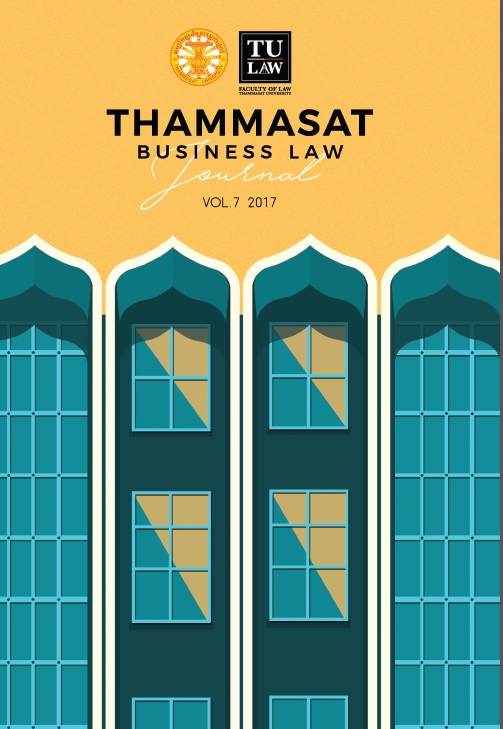THE POSSIBILITY OF ADOPTING OTHER EXCEPTIONS TO THE INDEPENDENCE PRINCIPLE IN LETTERS OF CREDIT IN THE PHILIPPINES
Main Article Content
Abstract
The purpose of this thesis is to identify other exceptions to the application of documentary letters of credit other than the fraud exception rule as recognised by the courts in the US, England, Australia and Singapore, with special focus on their adaptability in the Philippines. After examining various cases, three other exceptions have emerged namely, unconscionability, illegality and nullity of documents.
The fraud rule is the only recognised exception in a letter of credit transaction. Only the existence of fraud could hinder payment to the beneficiary of a letter of credit. With the payment function of a letter of credit, the beneficiary is assured of payment. Any activity or transaction on the part of the beneficiary, absence of fraud, will not affect the letter of credit transaction. Consequently, beneficiaries are overly protected from non- payment while buyers/applicants are left with limited recourse.
This research examines other exceptions that could further be alleged by the applicant to stop the beneficiary from drawing on the credit. Upon further research, adapting the three other exceptions would promote balance of rights between the applicant and beneficiary as it would compensate for the rigid application of the independence principle. As a result, it had been concluded that the three other asserted exceptions could be adapted in the Philippines following the decisions arrived at or guidelines provided by the courts in the US, England, Australia and Singapore.
Article Details
References
Uniform Customs and Practices for Documentary Credits (UCP 600)
US Uniform Commercial Code of 2007
Australian Consumer Law Act of 2010
Books
Ellinger, Eliahu Peter and Dora Neo. The Law and Practice of Documentary Letters of Credit
(Hart 2010) 169
Journals
Hooley, Richard. “Fraud and Letters of Credit: Is there a Nullity Exception?” 61 (2002) Cambridge LJ 181
Mann, Ronald J., and Clayton P. Gillette. “The Role of Letters of Credit in Payment
Transactions.” Michigan Law Review 98, no. 8 (2000): 2494.
McLaughlin, Gerald. “Exploring Boundaries: A Legal and Structural Analysis of the
Independence Principle of Letter of Credit Law.” Banking Law Journal 119, (2002): 527-528.
Williams , Mark. “Documentary Credits and Fraud: English and Chinese Law Compared” Journal of Business Law 155 (2004)
Online
Alavi, Hamed. “Comparative Study of Unconscionability Exception to the Principle of Autonomy in Law of Letter of Credits.” Acta Universitatis Danubius 12, no. 2 (2016): 107, accessed December 12, 2016,
http://journals.univ-danubius.ro/index.php/juridica/article/view/3537/3440


